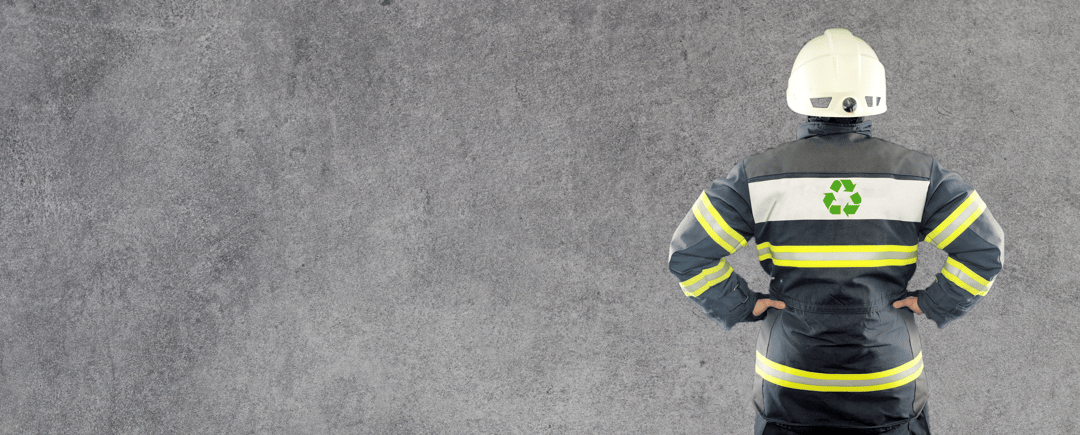As we know, there is currently a real push towards embedding sustainability into everything we do within the protective clothing industry. When it comes to fire gear, we must, of course, prioritise the safety of the wearer. However, as technologies advance, there are more and more options for incorporating sustainable practices within fire gear. In this blog, we take a closer look at what your options are.
The key to sustainability in fire gear: life cycle extension
Striving to extend the life cycle of fire suits is the main way that we can be more sustainable. The different types of fire suits — eg wildland, station wear and structural — have limitations when it comes to sustainability, due to the fibres needed to maintain their protective qualities.
This means that it is more effective to place our focus on the broader goal of making each type of garment last as long as possible before it needs to be replaced.
Material choices
The first way we can extend the life cycle of a fire suit is to purchase suits made from materials that last longer. You want to aim for materials that are more durable, both when the garment is in use and when it is undergoing repetitive laundering cycles.
The second way is to choose more sustainable fibres and fabric options. For instance, with wildland and stationwear garments, we see a growing demand for garments made of Tencel Lyocell fibres. Within stationwear garments, we also see sustainable fabrics being made from recycled PET bottles. While we may not have quite the same options when it comes to sustainable materials being used in structural suits, ultimately the emphasis should be on seeking out garments that last longer, promoting both the highest levels of safety and durability.
Care and maintenance programmes
Many garment manufacturers now offer care and maintenance programmes when you purchase your garment from them. These specialised programmes are set up to wash and repair your gear to the precise specifications of the manufacturer, ensuring that the garment is looked after to the highest standards. By making use of these programmes, you can potentially double the lifetime of your fire suit.
Recycling programmes
When thinking about sustainability, it’s important to consider the full cycle of a garment. When the fire suit does eventually reach the end of its life, how it is disposed of has an equal impact on the environment as how it is constructed. Thankfully, there are now a number of recycling programmes in existence for fire gear. These are designed to pull apart and dispose of the suits in an eco-friendly manner, minimising their impact on the environment.
Want to learn more about making sustainable choices in fire gear?
If you have any questions about any of the elements mentioned above, a member of our team will be more than happy to discuss further. Get in touch here.








